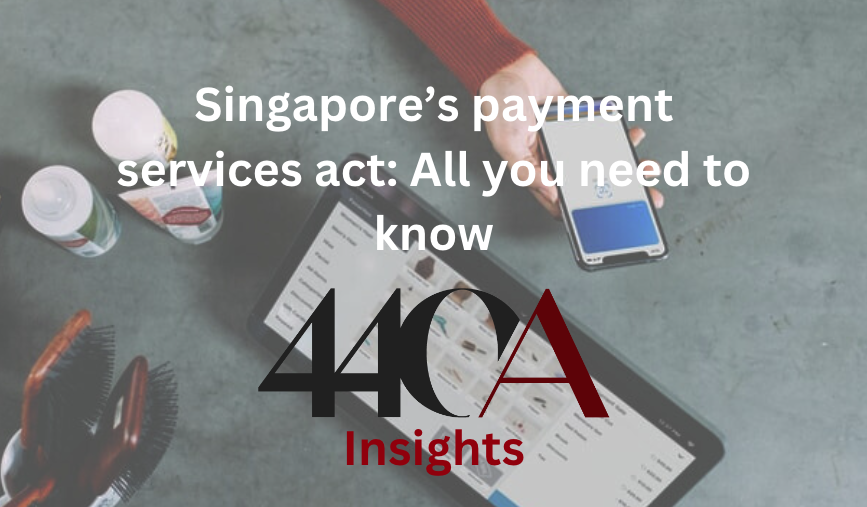Singapore’s digital payments market is growing, and the payment services act is the framework for this burgeoning industry to grow.
Digital payments or e-payments in Singapore were up more than 20% in 2020 from the previous year. Values for 2023 are expected to amount to US$20bn, doubling to US$40bn in 2027.
Technology is helping more customers to access the digital payments market, and allowing more innovative platforms to be launched. Covid-19 has accelerated this uptake in many ways.
With tightening regulations, what considerations are there for companies wanting to gain access to Singapore’s digital payments market?
Gateway to South-east Asia: Why Singapore’s Digital Payments Market makes it the best place to start.
For fintech companies and other non-bank players, Singapore’s payments landscape presents many opportunities and is also a key market to establish further entry into the South-east Asia region.
By 2024, Singapore’s total transacted value of digital payments is expected to continue to beat out that in South-east Asia’s fastest growing digital payment markets – Vietnam and Myanmar.
Singapore: Incorporating your business in South-east Asia’s fintech startup city
Operating a payments business in Singapore requires businesses be registered with the national regulator of businesses – ACRA, and to comply with specific governance and ownership structures.
Getting licensed as a provider under the payment services act
Under the Payment Services Act (PS Act) introduced by the Monetary Authority of Singapore in 2020, companies that provide payment services whether B2B or to consumers must hold a payment service provider licence. These include e-wallet or e-money firms.
For a successful application to the relevant payment services act licence, companies need:
- To determine what type of licence is required for their type of business (Standard Payment Institution Licence/Major Payment Institution Licence/Money Changing Licence)
- Consider how to fulfill certain requirements which include meeting minimum compliance arrangements
- Provide information on the business model and plans in your application
Ensuring compliance with evolving regulations
Entering the market as a licensed digital payment solutions provider is not the end of the story. Once licensed, compliance needs to be continuously followed.
Licensed digital payments companies need to ensure they remain compliant with the requirements of the Payment Services Act. In addition, there are other relevant guidelines and regulations to follow with appropriate internal policies and procedures.
(Edit: some new law changes to impact crypto companies in SG for 2024, read more here.)
Staying on top of all this requires companies to continue to keep up-to-date on regulatory changes — if this sounds daunting, not to worry, we’re here to help!
ACCELERATING ENTRY AND ACCESS TO SINGAPORE’S DIGITAL PAYMENTS MARKET
440A is a trusted advisor to our clients which include a Singapore-based fintech multinational providing payment solutions.
We advise and provide ongoing support to keep our clients’ business going and growing in Singapore and globally. We can help with the incorporation of your payment services startup, obtaining relevant licensing requirements and other business matters.
For guidance on market entry, applicable licensing requirements, including Singapore’s payment services act, get in touch via the enquiry form below.

